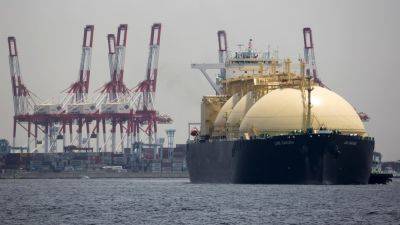Falling fertility rates pose major challenges for the global economy, report finds
Falling fertility rates are set to spark a transformational demographic shift over the next 25 years, with major implications for the global economy, according to a new study.
By 2050, three-quarters of countries are forecast to fall below the population replacement birth rate of 2.1 babies per female, research published Wednesday in The Lancet medical journal found.
That would leave 49 countries — primarily in low-income regions of sub-Saharan Africa and Asia — responsible for the majority of new births.
"Future trends in fertility rates and livebirths will propagate shifts in global population dynamics, driving changes to international relations and a geopolitical environment, and highlighting new challenges in migration and global aid networks," the report's authors wrote in their conclusion.
By 2100, just six countries are expected to have population-replacing birth rates: The African nations of Chad, Niger and Tonga, the Pacific islands of Samoa and Tonga, and central Asia's Tajikistan.
That shifting demographic landscape will have "profound" social, economic, environmental and geopolitical impacts, the report's authors said.
In particular, shrinking workforces in advanced economies will require significant political and fiscal intervention, even as advances in technology provide some support.
"As the workforce declines, the total size of the economy will tend to decline even if output per worker stays the same. In the absence of liberal migration policies, these nations will face many challenges," Dr. Christopher Murray, a lead author of the report and director at the Institute for Health Metrics and Evaluation, told CNBC.
"AI (artificial intelligence) and robotics may diminish the economic impact of declining workforces







